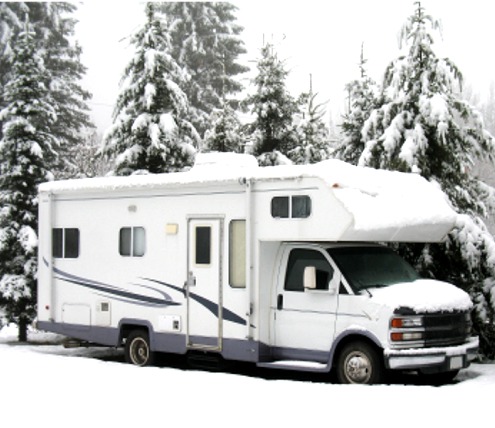 RV trips don’t have to be limited to just the summer months. Going RVing in the winter offers unique experiences that you wouldn’t get in the summer. While it does present some of its own challenges in terms of keeping you and your RV warm, all it takes is a little extra preparation. This can hold true whether you are camping in a winter wonderland or traveling through a cold area to get to someplace warmer. If you aren’t storing your RV for winter, here are a few tips to help you out.
RV trips don’t have to be limited to just the summer months. Going RVing in the winter offers unique experiences that you wouldn’t get in the summer. While it does present some of its own challenges in terms of keeping you and your RV warm, all it takes is a little extra preparation. This can hold true whether you are camping in a winter wonderland or traveling through a cold area to get to someplace warmer. If you aren’t storing your RV for winter, here are a few tips to help you out.
Keeping your RV from freezing, especially once it’s parked, is an important aspect to consider. Make sure there is sufficient insulation around the undercarriage. If you have a 5th Wheel, a skirt around the outside overhang helps as well. Doors and windows should be sealed so they don’t allow drafts. It’s also a good idea to put carpets on any hard floors inside. You’ll need to make sure the water stays flowing and the pipes don’t freeze. In cold temperatures, keeping sink cabinets open allows your motorhome’s interior heating to get at the pipes underneath. Having a hair dryer with a long cord on hand is a good idea in case you need to heat up pipes or hoses. You can also make use of
heated water hoses, which have built-in thermostats to keep the water inside from freezing. Whether it's part of your RV or your tow vehicle, make sure the engine is in good working order. This includes having enough antifreeze in the engine and having your RV’s batteries in good shape. Batteries should also be totally charged and the gas tank should be at least half full. Stabilizer jacks can freeze to the ground if you’re not careful. Placing wooden blocks underneath them can prevent this from happening. Another good idea is to keep your slide-outs retracted at night to keep them from freezing in place.
Keeping yourselves warm during a winter RV trip is also a priority. Have a couple space heaters, like the
Camco Olympian on hand in case you need to supplement the heat coming from the furnace. Speaking of which, the furnace should be checked to make sure it's clean and the vents are clear. You should have extra food and water with you, just in case unexpected snow comes, and definitely keep an eye on the weather. Bring extra blankets and make sure the bedding you have is warm enough. When parking your RV, you’ll want to do the opposite of what you do in summer. You’ll want to park it where it gets sufficient sunlight, so it can help heat up the inside. Use thermal curtains or insulation, such as Reflectix, on the windows, particularly at night, to keep heat from escaping.
There are a few other little things to keep in mind during winter RV travel as well. Preventing mold & mildew build-up with all those heaters running and with more time being spent inside is one of them. Vents should be open, with a cover on them, to let moisture out. You can also make use of de-humidifiers. Carbon monoxide and smoke detectors should always be in working order, but especially if you have space heaters running. Have snow clearing tools on hand in case you need to dig out or get snow off your RV’s roof. And finally, putting a little RV antifreeze in the black and gray water tanks will keep the contents inside from freezing.
Going RVing in the Winter